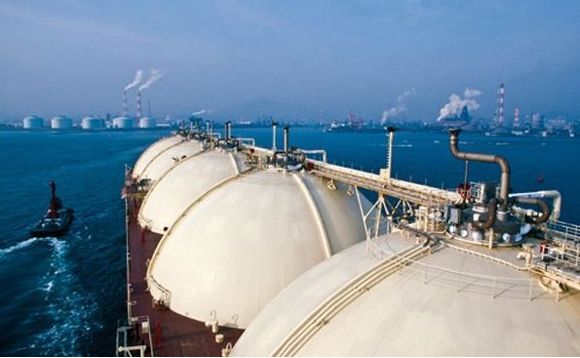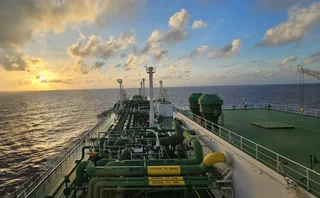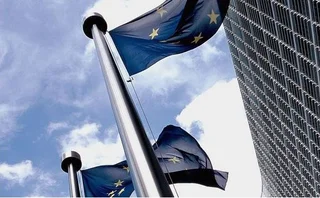An encouraging shift in Asian LNG
Changes brewing in Asia are a reminder that trading can be a social good


Every once in a while, waves of change rip through the markets. Firms that had enjoyed immense pricing power suddenly find competitors nipping at their heels. Old ways of doing business fall by the wayside, replaced by new approaches that seemed unthinkable a few years earlier.
Such a transformation appears to be under way in the market for liquefied natural gas (LNG) in Asia, where the bulk of the world's LNG is consumed. It is an exciting development for commodity traders who don't often get to see a new market opening up – as well as for Asian consumers, who are likely to benefit from a more responsive, transparent pricing of LNG.
Ever since the world's first purpose-built LNG tanker, the Methane Princess, set sail in 1964, the LNG business has been dominated by long-term, fixed-volume supply contracts lasting as long as 20 to 25 years. Producers such as Qatar's RasGas justify such contracts by pointing to the huge costs of building facilities that can cool natural gas to -160 degrees Celsius and load it, in liquid form, into seaborne vessels. Consumers, though, have grown increasingly upset about such contracts, which ban them from diverting surplus cargoes to other buyers, among other unappealing provisions.
Perhaps the most onerous aspect of the traditional LNG contract, though, is the use of oil indexation to set the price. This would make sense if crude oil and natural gas prices were strongly correlated, with a predictable relationship that changed little over time. But lately, oil and gas have grown disconnected and, all too often, Asian consumers have found themselves paying more for their LNG than they would have if the contract had used some form of gas-on-gas pricing.
That's why the growth of LNG spot trading is so exciting. Short-term transactions of less than two years, rare at the turn of the millennium, now account for more than a quarter of volumes traded – and analysts expect the share to keep rising as new supplies come online from places such as the US and Australia. With greater liquidity in the spot market, LNG spot indexes can offer a real alternative to oil indexation. And if such indexes take off, derivatives linked to them are likely to gain momentum too, providing firms with ways to hedge their LNG price exposure.
It is worth striking a note of caution here. In the past half-decade, there have been repeated predictions of the imminent emergence of a traded LNG market, and the revolution hasn't quite arrived yet.
Still, the latest signs suggest that change is finally afoot. Analysts point to a significant overhang of supply by 2020, which would drive a big jump in spot transactions. Bullishness seems to be rising at banks, exchanges, trading houses and price reporting agencies, which are falling over each other to offer new LNG indexes or position themselves for the arrival of LNG as a traded commodity. There is a lively debate in the trading community over which regional hub is best suited to become the benchmark for Asian LNG, whether it be Singapore, Shanghai or some point in Japan or South Korea.
It is ultimately up to market participants to decide whether LNG trading will flourish and which index will be the most successful. Whatever happens, we'll be watching. After all, it's not too often that one can witness history in the making.
More on Gas/LNG
Energy Risk Europe Leaders’ Network: geopolitical risk
Energy Risk’s European Leaders’ Network had its first meeting in November to discuss the risks posed to energy firms by recent geopolitical developments
Energy Risk US Leaders’ Network: tackling volatility
Energy Risk’s inaugural US Leaders’ Network convened in Houston in October to discuss risk management challenges caused by geopolitical upheaval, policy uncertainty and volatility
LNG trading strategies set to change amid major market shifts
The global LNG market is on the brink of significant changes set to alter trading dynamics and market behaviour, say analysts
Energy Risk at 30: Learning from the past
Energy Risk looks back at the seminal events and developments that have shaped today’s energy markets
Natural gas/LNG house of the year: ENGIE
Energy Risk Awards 2025: Energy firm signs a string of innovative deals in established and fledgling gas markets
Natural gas/LNG house of the year: ENGIE
ENGIE continues to expand its services to better serve firms in Apac dealing with the challenges of energy risk management and supply
Market shrugs off EC’s plan to change gas benchmark
Dutch TTF prices unmoved, as market participants say they are “not taking it seriously”
Natural gas/LNG house of the year: Engie
Energy Risk Awards 2021: In a volatile market Engie continued to grow its gas and asset management businesses







